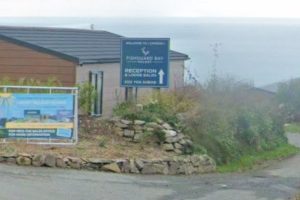THE LITTLE RETREAT has shared a list of five amazing things about Pembrokeshire that locals may not know about.
The Little Retreat is a “feelgood location that restores the body, inspires the mind and energises the soul”.
It offers customers the opportunity to reconnect with themselves, the wild and with each other in their luxury glamping accommodation.
Located in Lawrenny in a walled garden of an old castle site, the retreat is licensed by Woodland Champions Club, which means all guests will be signed up as a free member and a tree will be planted for every booking.
The list of fabulous facts, published by Amber Rich, includes:
- The smaller stones erected at Stonehenge in Wiltshire, came from the Preseli Hills in Pembrokeshire and were brought there by prehistoric engineers more than 4,500 years ago – no mean feat considering they each weighed between 2 and 5 tonnes (the stones, not the people).
- Its coast was the site of the last invasion on British soil by a foreign (French) army. It wasn’t a particularly impressive force, and it was said to have been sent packing by some local ladies dressed in traditional Welsh dress, mistaken as (possibly less fearsome) Redcoats. The site was near Fishguard just 35 mins from The Little Retreat – Click here fo The Last Invasion Trail
- It was the birthplace of one of the most powerful and infamous royal dynasties of the European Middle Ages. Henry Tudor was born at Pembroke Castle and went on to settle the Wars of the Roses to become King Henry VII, dad of the feisty Henry VIII and grandad of Queen Elizabeth I. Family Christmases must have been a laugh.
- It hosted the largest allied aircraft flown during World War II. The monster Sunderland seaplanes based at Pembroke Dock were instrumental in the Battle of the Atlantic, where German U Boats threatened to strangle the Allies’ supply lines. Even German pilots feared this leviathan, calling it the Flying Porcupine (Fliegendes Stachelschwein, since you asked) due to its fiendish defensive guns.
- Pembrokeshire is divided in two by the second deepest natural harbour in the world. The stunning Milford Haven estuary, a flooded valley, winds 19 miles from a rugged coastal entrance to peaceful upper reaches. (Sydney Harbour is the deepest and it’s not too shabby either.)
















